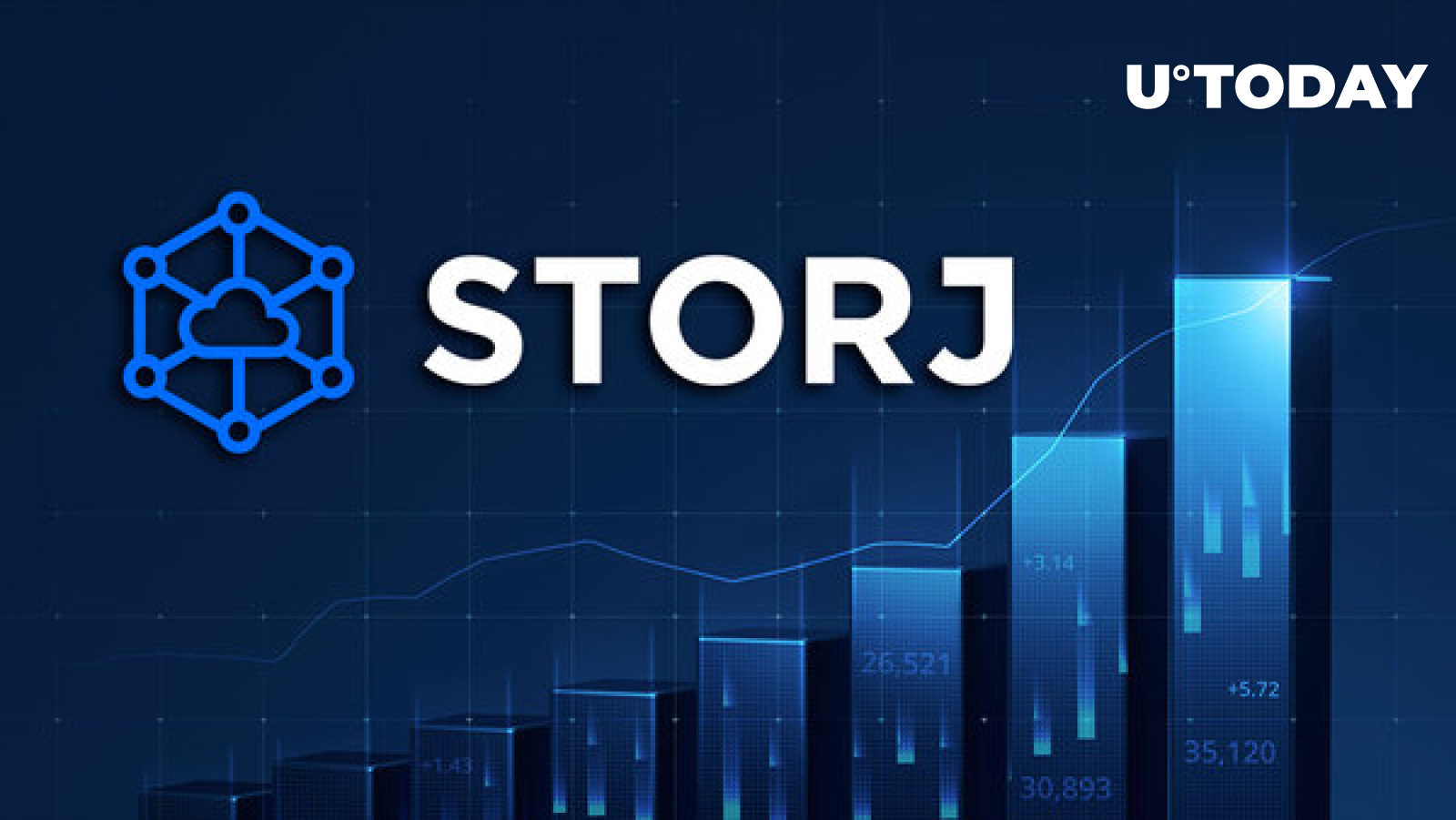Disclaimer: The opinions expressed by our writers are their own and do not represent the views of U.Today. The financial and market information provided on U.Today is intended for informational purposes only. U.Today is not liable for any financial losses incurred while trading cryptocurrencies. Conduct your own research by contacting financial experts before making any investment decisions. We believe that all content is accurate as of the date of publication, but certain offers mentioned may no longer be available.
Storj experienced a price surge of 16% within just one hour, drawing the attention of investors away from the sensational performance of Solana or Injective. However, the sudden uptick in price is not a guarantee of a sustainable gain.
The rapid ascent in STORJ’s value, albeit brief, is noteworthy in the context of the cryptocurrency market, which is known for its quick shifts in investor sentiment and price movements. Such spikes are often driven by a confluence of factors, including market rumors, investor behavior and significant trades.
Following the price surge, substantial activity was observed involving two wallets that withdrew a combined total of 23 million STORJ, equivalent to approximately $23.7 million, from leading cryptocurrency exchanges Binance and OKX. This transaction is significant because large withdrawals can sometimes be associated with price movements. In the case of STORJ, it suggests that major stakeholders might be consolidating their holdings, potentially in anticipation of future developments or as a response to the recent price action.
The withdrawal of such a substantial amount of STORJ from exchanges reduces the available supply for trading, which can lead to increased price volatility due to the imbalance between supply and demand. If the holders of these wallets do not sell their STORJ in the open market, the reduced sell-side pressure could support the price of STORJ, possibly leading to further growth.
However, it is also essential to consider the opposite scenario. If these large holders were to sell their STORJ, it could result in increased sell pressure, which might negate the recent price gains and lead to a downward price correction.
